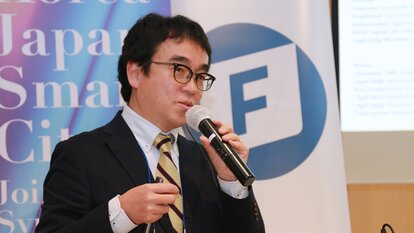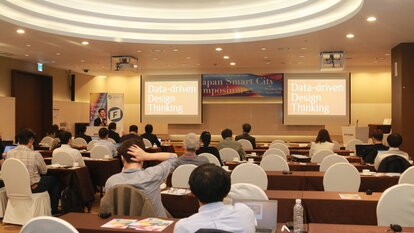Smart Cities
Making Cities Smarter and Safer: Lessons from Korea and Japan
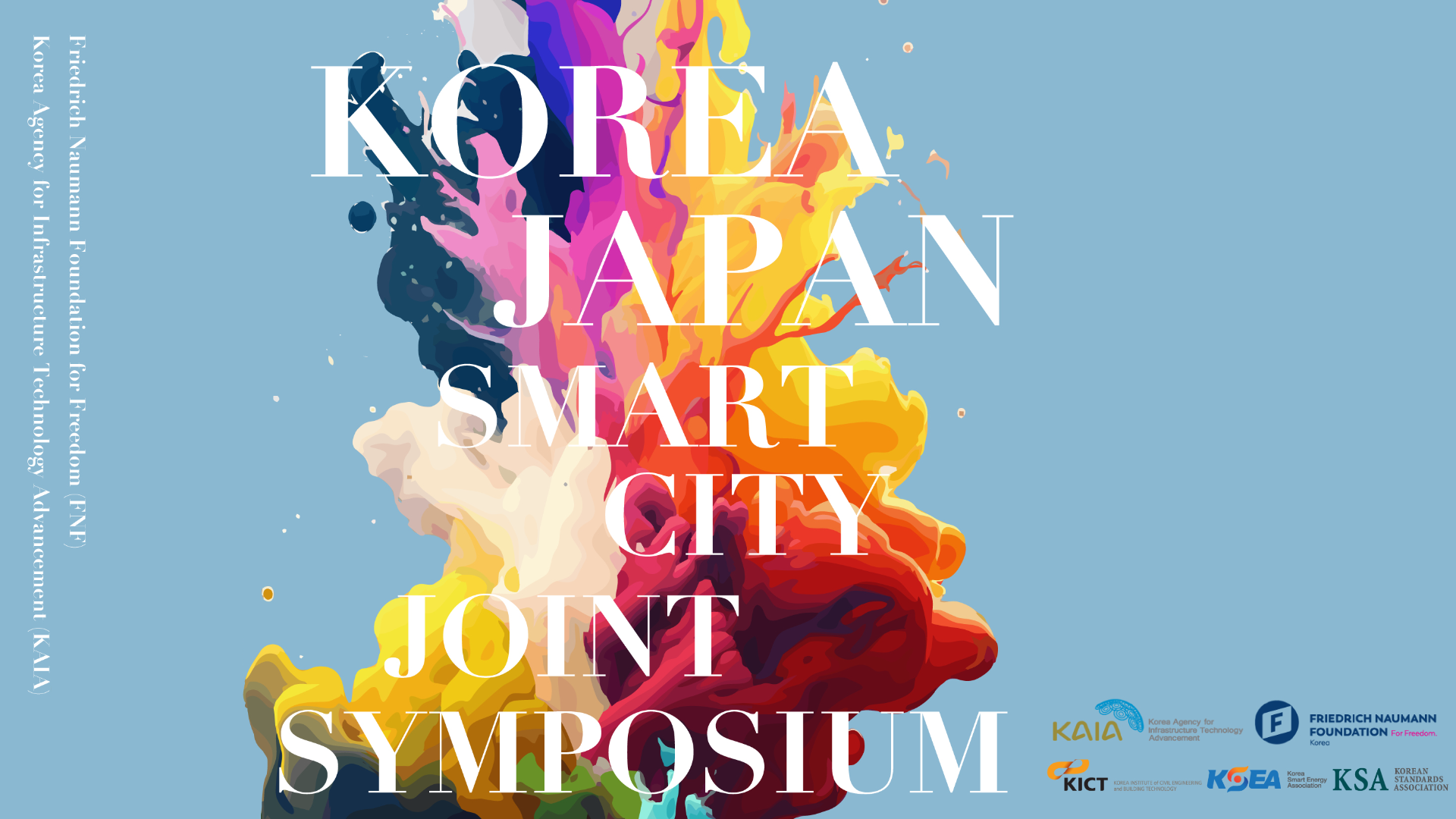
Korea-Japan Smart City Joint Symposium
On November 2nd, 2023, Korea-Japan Smart City Joint Symposium was held at the Mozart Hall, President Hotel in Seoul. The symposium, co-organized by the Korea Agency for Infrastructure Technology Advancement (KAIA) and the Friedrich Naumann Foundation for Freedom (FNF), sought to unravel the intricacies of smart city data governance while drawing lessons from the experiences of both South Korea and Japan.
Smart cities, driven by data, offer inventive solutions to social challenges, shaping resilient societies rooted in data ecosystems. The surge of interconnected smart cities, however, presents challenges in bureaucratic structures. The ongoing dialogue centers on developing a smart city interoperability reference architecture, addressing vital aspects like data governance, quality, integration, security, design, and operations.
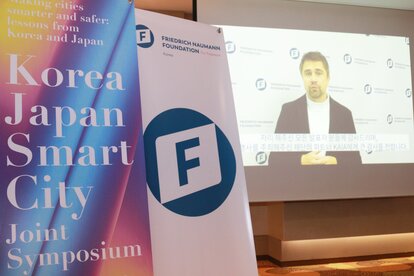
Frederic Spohr, FNF Korea, welcoming participants via video message
Making Cities Smarter and Safer
The symposium navigated the dynamic field of data governance in smart cities, conducting an in-depth examination of Korea and Japan's data-centric and agile governance approaches. The key points included insights and recommendations for fortifying data governance in pursuit of smarter and safer cities, covering areas such as data quality, architecture, modeling, security, and integration.
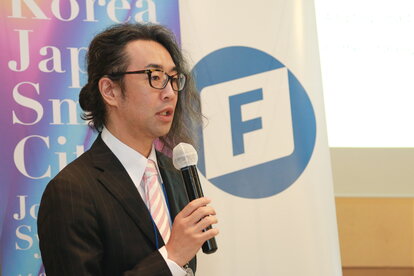
Yuta Hirayama, Advisor to Tsukuba City/Special Professor at Osaka Metropolitan University
Key Speakers and Topics
The symposium delved into Smart Cities in Japan and Korea, featuring presentations by esteemed speakers exploring topics such as Smart City Guidebooks, Governance Practices, Open Data Platforms, Interoperable Reference Architectures, and Energy Management Data Models, each offering a unique perspective on the path to smarter and safer cities:
- Isao Tada, CEO at Asumachi Lab/Advisor for local Informatization:
-
Isao Tada set the tone by exploring "Smart City Guidebook and Practices" in the Japanese context. By introducing region-specific strategies, Tada underscored the importance of recognizing and embracing the distinctiveness of each locale.
- Yuta Hirayama, Advisor to Tsukuba City/Special Professor at Osaka Metropolitan University:
-
Yuta Hirayama shared insights into "Smart City Governance Practices of G20 Global Smart Cities Alliance" and highlighted the importance of establishing global norms for the ethical and responsible use of smart technologies in cities and the need for a unified, principled approach to guide the evolution of smart cities worldwide.
- Yoshio Sakamoto, Chief Innovation Architect at Institute of Systems, Information Technologies and Nanotechnologies:
-
Yoshio Sakamoto delved into the technological backbone of smart cities. By highlighting the imperative "Building an Open Data Platform for Smart Cities", Sakamoto emphasized the foundational role technology plays in fostering interconnected and data-driven urban environments.
- Jina Park, Program Director at KAIA:
-
Jina Park presented on "Smart City Interoperable Reference Architecture" from the Korean perspective. Jina Park's insights demonstrated a commitment to fostering compatibility and collaboration, essential elements for a cohesive and integrated smart city ecosystem.
- JooSang Park, National Standard Coordinator/IEC Systems Committees at Korean Agency for Technology and Standards (KATS):
-
JooSang Park elaborated on "The Future of Smart Cities and the System Approach for Standardization". By emphasizing the need for system standardization that considers the multitude of stakeholders and diverse layers, Joosang Park highlighted the importance of a holistic framework for sustainable urban development.
- SeongSig Kim, Senior Research Fellow at Korea Institute of Civil Engineering & Building Technology (KICT):
-
SeongSig Kim acknowledged the inherent complexity of smart cities. Kim's introduction of a "Smart City Guidance Package" recognized the need to move beyond simplistic standardization, providing a navigational tool that acknowledges and addresses the intricate challenges posed by modern urban environments.
- JeeSik Park, Chairman at Korea Smart Energy Association (KoSEA):
-
JeeSik Park closed the symposium with a particular topic in his presentation on "A Data Model for Energy Management in Smart Cities" , emphasizing the critical role of energy management in buildling system. JeeSik Park urged the standardization of building energy management systems, considering the significant impact of energy consumption in the building sector.
Together, the experts shared a wealth of valuable insights, guiding the audience through the diverse landscape of smart city development. The presentations were followed by a lively panel discussion moderated by Jina Park, which was the highlight of the symposium. The atmosphere was electric, with hands constantly raised from the engaged audience, likely drawn by the unique opportunities to exchange ideas with Japanese smart city experts.
*Lin Choi is the Program & Communications Officer of the Friedrich Naumann Foundation for Freedom Korea office.

